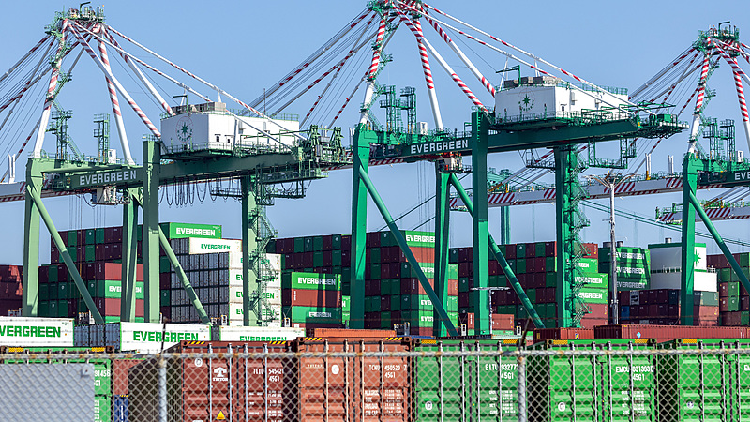Thailand postpones tariff discussions with the U.S., citing Japan's refusal to yield
Thailand has delayed tariff negotiations with the United States, and Japan is still resistant to meeting Washington's requests. This indicates potential obstacles for the U.S. in securing trade agreements with certain trading partners.

Prime Minister Paetongtarn Shinawatra announced on Tuesday that Thailand decided to delay discussions about steep trade tariffs after the U.S. requested a review of key issues. She mentioned that a new date for the talks, initially scheduled for April 23, is currently being arranged.
Thailand is one of the Southeast Asian nations most impacted by U.S. President Donald Trump's policies, facing a possible 36 percent tariff if a reduction cannot be negotiated before a global moratorium ends in July.
"We're not too slow and we are reviewing issues, including our tariffs that may be adjusted appropriately," Paetongtarn stated, also noting that they are assessing both Thai agricultural exports and potential additional imports. “We are consulting academics and all parties and doing our best in this situation... We are protecting the agricultural interests as much as possible,” she added, emphasizing the goal of mutually beneficial negotiations.
Finance Minister Pichai Chunhavajira, who was anticipated to participate in the Washington negotiations, confirmed that discussions are still progressing at the working level despite the postponement, although he indicated that he does not have plans to visit the U.S. at this time.
Last year, the United States was Thailand's largest export market, making up 18.3 percent of total exports, which equated to $54.96 billion. The U.S. has reported a $45.6 billion trade deficit with Thailand.
Thai rice exports saw a significant reduction of 30 percent in the first quarter and are projected to fall short of the full-year forecast of 7.5 million metric tonnes due to the tariffs, according to the rice export association.
Japan Won't Concede
Japanese Prime Minister Shigeru Ishiba remarked on Monday that Japan will not yield to all U.S. demands in trade negotiations, emphasizing the importance of protecting national interests.
"If Japan concedes everything, we won't be able to secure our national interests," Ishiba asserted during a parliamentary session, according to Bloomberg.
Ishiba added that Tokyo has no intention of ending the trade deal established with the U.S. in 2019 but will continue to express "grave concern" regarding the inconsistencies between the agreement and Trump's recent automobile tariffs.
During Trump’s first term, the U.S. and Japan reached a bilateral trade agreement in 2019 that reduced tariffs on U.S. agricultural products, Japanese machine tools, and various other goods, while addressing the threat of higher U.S. car duties.
Although the deal did not encompass automotive trade, former Prime Minister Shinzo Abe stated he received assurances from Trump that “no further, additional tariffs will be imposed” on Japanese car imports.
However, Japan was not exempt from Trump's recent 25 percent tariff on all automobile imports to the United States.
"Japan has grave concern over the consistency" regarding the latest U.S. automobile tariffs and the 2019 trade deal, Ishiba declared to parliament.
Japan's lead trade negotiator, Ryosei Akazawa, visited Washington last week to initiate bilateral trade discussions, which will likely cover non-tariff barriers and the complex issue of exchange rates.
Finance Minister Katsunobu Kato is scheduled to visit Washington later this week, where he is expected to engage in conversations about currency rates with U.S. Treasury Secretary Scott Bessent.
The dollar reached a seven-month low of 140.615 yen on Monday amid rising market speculation that the U.S. might pressure Japan to strengthen the yen, aiding Washington in reducing its substantial trade deficit.
Simultaneously, President Trump has implemented 24 percent tariffs on Japanese exports to the United States. While most of these tariffs are on hold until early July, a universal 10 percent rate remains in effect, along with a 25 percent tariff on automobiles—one of the crucial sectors of Japan’s export-driven economy.
Navid Kalantari contributed to this article for TROIB News
Find more stories on Business, Economy and Finance in TROIB business












